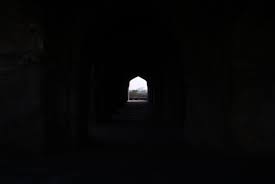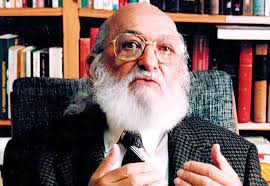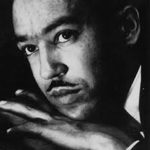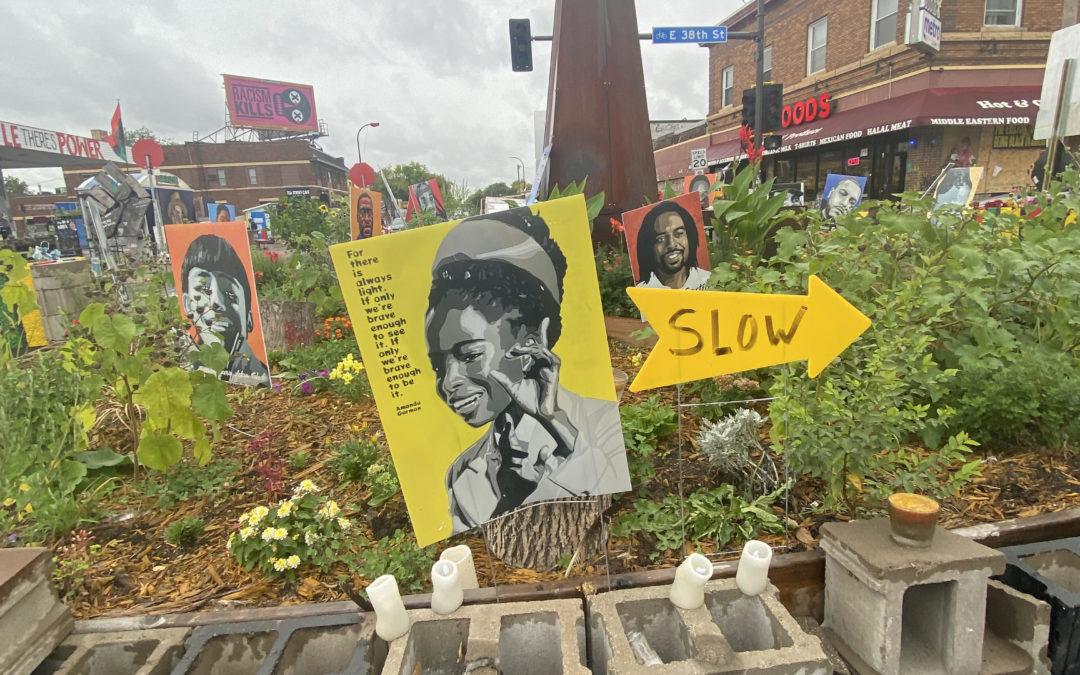“For there is always light,
if only we’re brave enough to see it.
If only we’re brave enough to be it.”
- Amanda Gorman
Light and Darkness
At the end of September, I visited Minneapolis, Minnesota on personal business, and took time to visit the George Floyd Memorial in that city. Amidst the awe-inspiring mix of flowers, signs, and sayings, I saw the above picture of poet Amanda Gorman and these words from “The Hill We Climb,” her inauguration poem. These words spoken just days after the January 6 attack on the Capitol inspired many within the sound of her voice that despite the fear, anger, and hopelessness many of us felt, there was hope, there was light in the darkness.
In my last posting I highlighted the words of Sikh Activist and author Valarie Kaur, who invited us to see the darkness of these times not as the darkness of the tomb, but the darkness of the womb, the darkness preceding the birth of a new hope, a new reality, a new and more just society. Kaur was not denying the dearth of honesty, morality, and compassion in our time, and yet she invited us to look to a brighter future, even in the midst of our despair and frustration.
Our Current Darkness
There is no doubt these are dark and troubling days. Most recently, the Texas legislature passed a bill that made it a crime to have an abortion more than six weeks after a child is conceived. As numerous women noted privately and publicly, most women don’t even know they are pregnant at six weeks, much less being in a position to decide whether to keep or abort the fetus. Moreover, that same bill legalized a vigilante justice, empowering citizens to sue someone they suspect of having an abortion or aiding someone to get one. This aspect of the bill reminded me of Hitler’s Nazi regime in which citizens to turned in their neighbors and children their parents for criticizing or resisting Hitler’s power.
This latest bill is only the latest in a series of actions legislative and otherwise designed to suppress human rights, suppress and complicate the ability to vote, deny refuge and sustenance to migrants fleeing violence and poverty, withhold funds designated to assist those struggling during the pandemic, and at the same time use taxpayer funds to conduct another recount of the 2020 election results in places like Arizona and Pennsylvania. Meanwhile, Congress struggles to pass even the most basic infrastructure bill in line with President Biden’s plan to rebuild the country’s roads and bridges, and provide resources for those in greatest need.
violence and poverty, withhold funds designated to assist those struggling during the pandemic, and at the same time use taxpayer funds to conduct another recount of the 2020 election results in places like Arizona and Pennsylvania. Meanwhile, Congress struggles to pass even the most basic infrastructure bill in line with President Biden’s plan to rebuild the country’s roads and bridges, and provide resources for those in greatest need.
In more local settings gun violence continues to take the lives of young people, schools struggle to educate while a pandemic continues to rage, and anti-vaxxers and anti-maskers holler about their liberties while dying at exorbitant and troubling rates.
Hardly a day goes by that I don’t view a newscast, receive multiple emails or open a letter decrying these atrocities. Often, they are asking for my financial support to stop the scourge that is now and is coming. I sometimes give as I am able, but more often than not I find myself longing for something more. Instead of reminding me of what challenges we face, I rarely receive a communication that inspires me to look beyond the current haze to what can and must and should be. As Amanda Gorman says, we must look to the light that is always there in the midst of our darkness, and where possible, to be that light for others.
Denunciation and Annunciation
Brazilian educator Paulo Freire lived and worked in a time like ours, a time of great upheaval, exiled from his native country for teaching people how to read and think for themselves about the conditions of their lives and communities. Even today in Bolsonaro’s Brazil efforts are being made to ban his books, and schools bearing his name are threatened with closure because of Freire’s radical and honest critique of the injustices of his time and ours. Freire was not afraid to call to account social, corporate, and political leaders and the unjust social and political structures they created. He referred to this outspoken critique as “denunciation” and stressed that working for justice in any dimension requires naming and denouncing the evils that exist.
 However, Freire did not stop at denunciation; he said at the same time people denounce injustice, they must offer an “annunciation,” a vision of what could and should be. Annunciation proclaims the possibility of a world where love, justice compassion, and equity reign, not just for the elite few but for all. And Freire said, not only should one announce this dreamed-for reality, one should actively and persistently work to bring that vision into reality. We must see the light, work for the light to spread, and be the light where possible.
However, Freire did not stop at denunciation; he said at the same time people denounce injustice, they must offer an “annunciation,” a vision of what could and should be. Annunciation proclaims the possibility of a world where love, justice compassion, and equity reign, not just for the elite few but for all. And Freire said, not only should one announce this dreamed-for reality, one should actively and persistently work to bring that vision into reality. We must see the light, work for the light to spread, and be the light where possible.
Freire believed, and I would guess Amanda Gorman would affirm, that hope is not something that one passively awaits, but rather is the preferred future one works for. Too many progressives have allowed themselves to be consumed by the fear and intimidation of the followers of Trump and his white nationalist militants. Somehow those same progressives have forgotten or overlooked that (1) we won the election and that (2) our vision is far more compelling and inclusive than those calling the nation back to a past that never existed for most Americans. Those wearing MAGA hats pine for an America that never was. We project an America yet to be.
The America Yet to Be
The noted poet Langston Hughes spoke of his dream for America this way:
Let America be America again.
Let it be the dream it used to be.
Let it be the pioneer on the plain
Seeking a home where he himself is free.
Let America be the dream the dreamers dreamed—
Let it be that great strong land of love
Where never kings connive nor tyrants scheme
That any man be crushed by one above.
O, let my land be a land where Liberty
Is crowned with no false patriotic wreath,
But opportunity is real, and life is free,
Equality is in the air we breathe.
This is the America that Langston Hughes dreamed of and dedicated himself to creating. Now those who know this poem will note that I have omitted words that lay between each stanza: In between each stanza Hughes denounced the reality of his day: “America was never America for me,” “It never was America for me,’ and “There’s never been equality for me, Nor freedom in this ‘homeland of the free.’” As a Black man in mid-20th century America, Hughes knew all too well the hate, degradation, marginalization, and injustice African Americans continually endured and still endure. Even as he announced the America he longed for, Hughes denounced the nation and its leaders for how far short we as a country have fallen from the ideals we profess. The Declaration of Independence promises ‘life, liberty and the pursuit of happiness” to every citizen but so many have never tasted them.
free.’” As a Black man in mid-20th century America, Hughes knew all too well the hate, degradation, marginalization, and injustice African Americans continually endured and still endure. Even as he announced the America he longed for, Hughes denounced the nation and its leaders for how far short we as a country have fallen from the ideals we profess. The Declaration of Independence promises ‘life, liberty and the pursuit of happiness” to every citizen but so many have never tasted them.
Near the end of the poem he brings his words denunciation and annunciation together when he writes:
O, yes,
I say it plain,
America never was America to me,
And yet I swear this oath—
America will be!
There is no question that in these times of The Big Lie that there is much to fear, despise and be concerned about. But the Big Lie thrives on fear, and so like Valarie Kaur calling us to move out of the darkness of the womb to the birth of a newer, more equitable society, we must not allow the dream of what can and must be lay muted by purveyors of fear and untruth. Like Freire, we must denounce injustice while we work for and walk in the hope of the new society we desire. Like Gorman, we must see the light and then be the light for ourselves and each other.
Sources
Paulo Freire (1998). Pedagogy of Freedom: Ethics, Democracy and Civic Courage. Rowan and Littlefield Publishers
Amanda Gorman (2021). “The Hill We Climb,” Recited January 20, 2021, Washington, DC.
Langston Hughes (1994) “Let America Be America Again,” Collected Poems of Langston Hughes, Vintage Books
Valarie Kaur (2020). See No Strange: A Memoir and Manifesto of Revolutionary Love. One World.


I love the simple juxtaposition of denunciation with annunciation. And I appreciate the reminder to live not from a place of fear, but of vision. It is easy to think this is the worst time in history, which neglects and diminishes the incredible spirit, work and vision – not to mention faith and hope – of so many who have gone before us.
As we mentioned when we were together, it is often the youth (Amanda Gorman) who help raise our sights. I hope we can couple our eldering wisdom with their fierce passion.
Wow, I did not know that in Brazil, schools with Freire’s name are being threatened with closure. If her were alive today, though, I know that he would not give up. He would keep announcing as well as denouncing. Thanks for your thoughts, Drick.